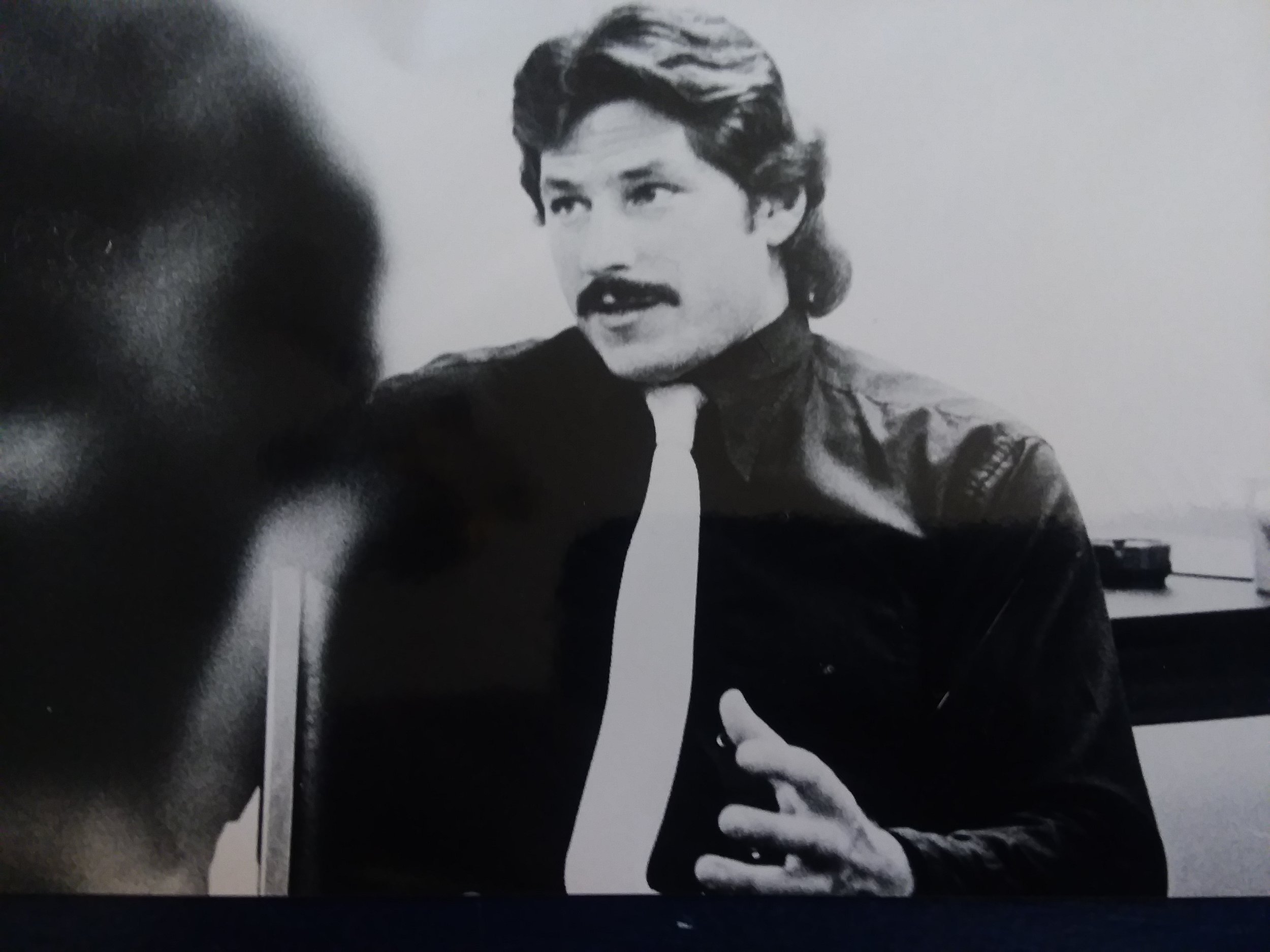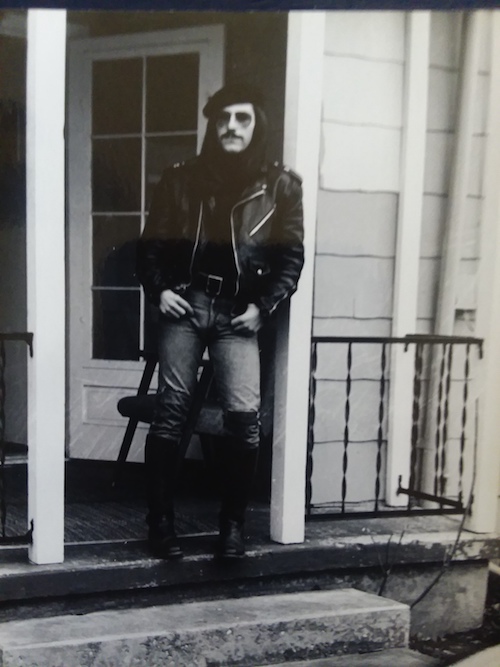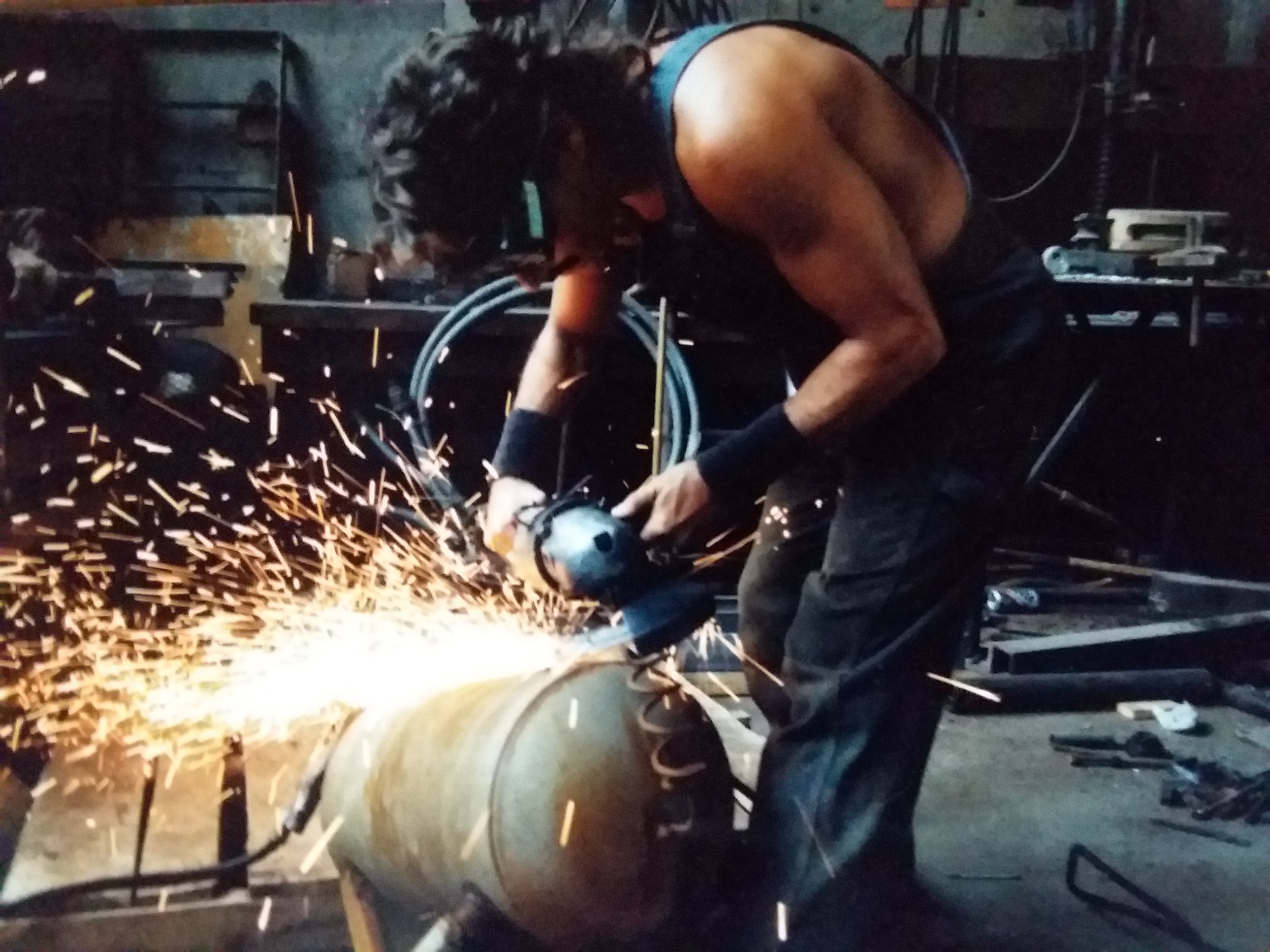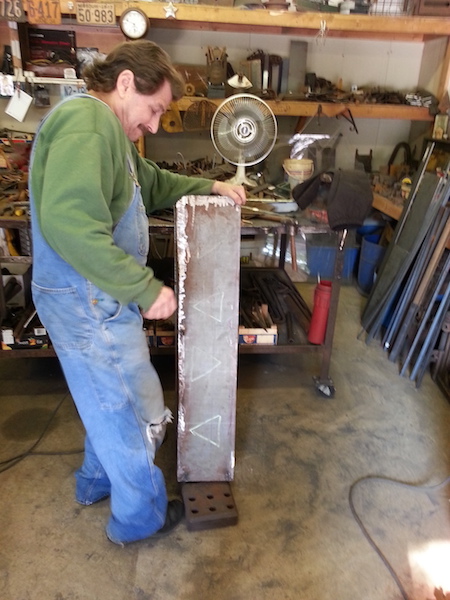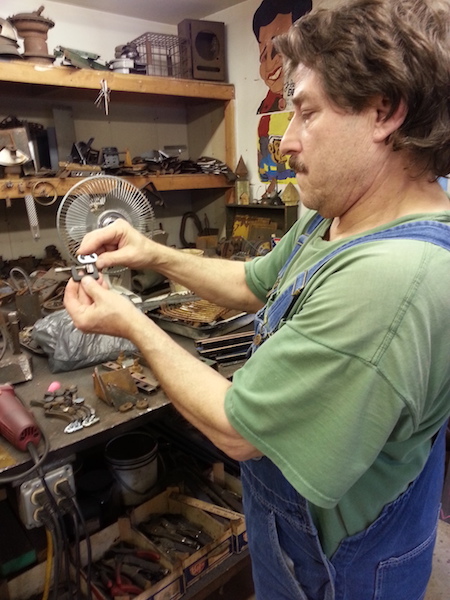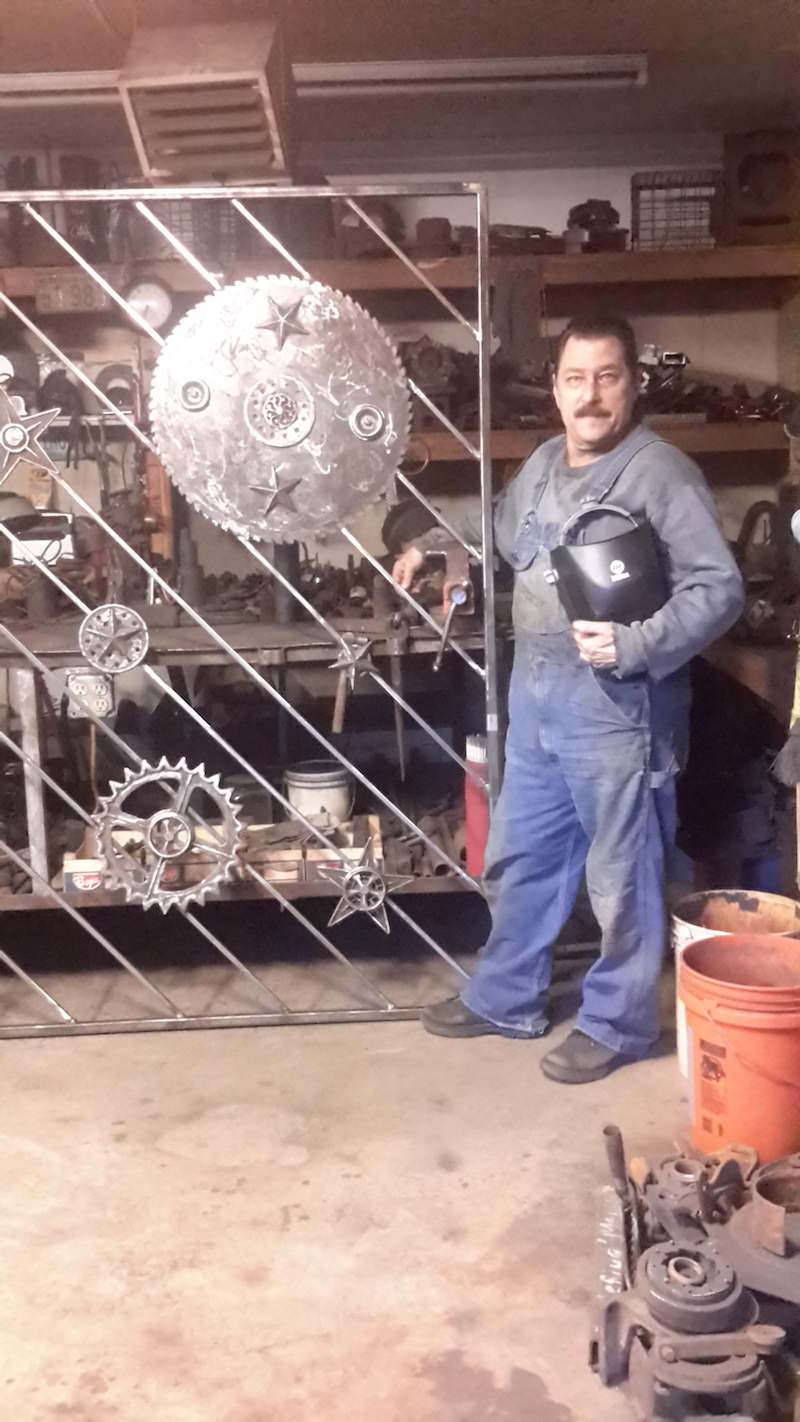about
Dale A. Dicker was born and raised in St. Louis, Mo. He discovered metal working while attending college at the University of Missouri-Columbia in the 1970s. During his years in Columbia, Dale enjoyed exploring the rural outskirts of the town, where walks along railroad tracks and the edges of farms yielded the metal discards that would become material for some of his earliest work. His landlord, a riverboat captain, gave Dale free use of an electric Lincoln welder that he kept inside an old garage. What began as a curiosity about the artistic possibilities that can come from a welder and shards of found metal quickly led to a life-long devotion to creating metal sculpture.
For decades Dale has shown his work in the St. Louis area, including the National Museum of Transportation, and in Memphis, Tennessee, where he’s had affiliation with The Jay Etkin Gallery, through which his work was shown at the Hunter Museum of American Art in Chattanooga. Many of his pieces reside in private and business collections. Dale considers himself a regional artist who continues to find inspiration from walks along riverbanks and railroad tracks, as well as urban alleyways. “Utilizing metallic debris from cleaned out barns, scrap yards on farms, the dumpster behind my office, it doesn’t get more local than that.”
Dale’s work is both representational and abstract. What underscores his sculpture is a psychological depth that Dale attributes to his years working in private practice as a licensed clinical social worker. Themes of innocence, loss of freedom and social injustice, celebration of physicality, trauma, and ironic humor resonate within his vast body of work, often evoking an emotional response from the viewer. Additionally, Dale has a love for pastoral beauty, as depicted in his multitude of sculpture devoted to horses, tractors, even a life-sized cow.
While Dale’s sculpture has evolved over the decades in range of subject matter and message, his techniques remain simple. Today he does his work inside a detached studio at his home in Chesterfield, Mo. where he works among bins of metal parts, cooling fans, and a decades-old Lincoln stick welder.
Story is an essential part of Dale’s work. “Every piece has a story,” says Dale. Political, historical and cultural subject matter have inspired both small and large-scale pieces.
Dale’s most recent project was the creation of a model German boxcar filled with horror-stricken figures. According to Dale, the boxcar reflects a tangible portent of monumental suffering and misery. “It is, in fact, a microcosm of genocide on an industrial scale. In other words, industrialization of death.” A Jewish American with family ties to the Holocaust, Dale says he feels a calling to keep a connection to history. “The people who originally built the boxcars probably never dreamed they would be used to send people, not cattle, on a massive scale to their untimely deaths.” Dale says his boxcar serves as a portent, a warning, a reminder of what human beings are capable of doing to one another, not just during the Holocaust, but today.


